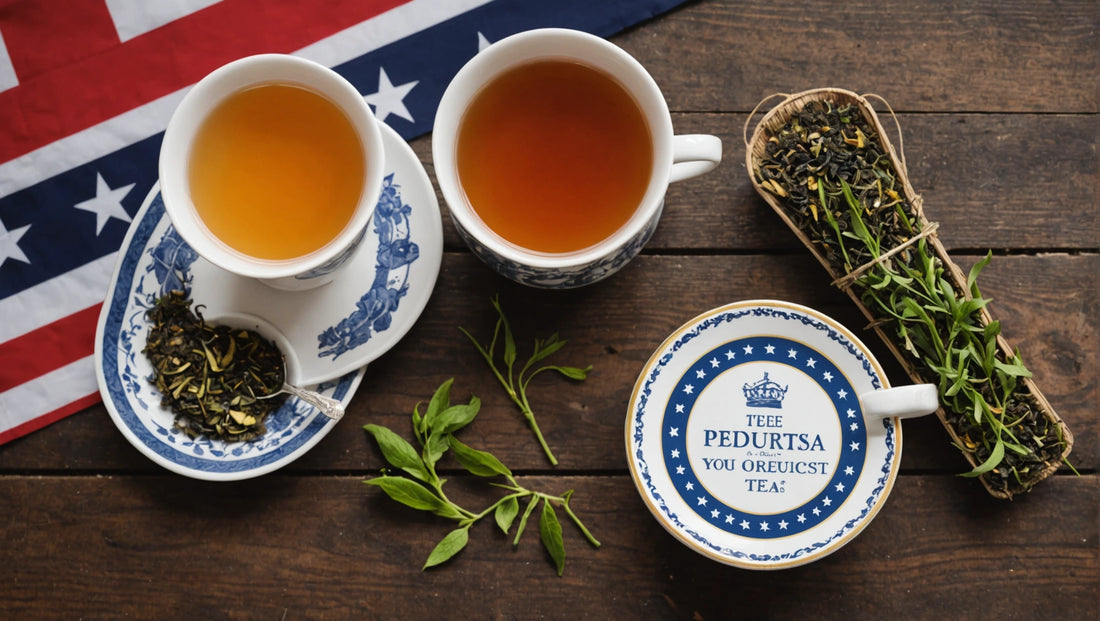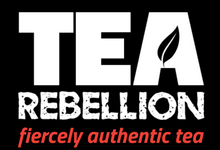
Tea and Politics - An Undeniable Blend
Tea and Politics - An Undeniable Blend
Tea and Politics - An Undeniable Blend is a unique blend of two seemingly unrelated worlds that have a surprising intersection. In this intriguing exploration, we delve into the cultural significance of tea in political settings, uncovering how this humble beverage has played a role in shaping political landscapes around the globe. From diplomatic meetings over tea to tea parties as political statements, the relationship between tea and politics is rich with history and symbolism. Join us as we sip our way through the complexities of governance and the comforting rituals of tea-drinking, discovering the power and nuances of this age-old tradition in the realm of politics. Whether you're a tea enthusiast, a political aficionado, or simply curious about the fusion of these two realms, Tea and Politics - Best Tea After your Vote promises to offer a fresh perspective on how a simple cup of tea can hold profound implications in the world of governance and decision-making.
Historical Perspective
Tea has a rich history that intertwines with significant political events and movements. From its origins in ancient China to its global popularity today, tea has played a role in shaping societies and influencing political decisions.
Origins in Ancient China
- The discovery of tea dates back to ancient China, where it was initially consumed for its medicinal properties before evolving into a popular beverage.
Tea in Colonial Times
- During the colonial era, tea became a symbol of status and wealth, leading to the rise of the tea trade and the establishment of tea plantations in various parts of the world.
Boston Tea Party
- One of the most famous political protests involving tea is the Boston Tea Party of 1773, where American colonists dumped tea into the harbor to protest against British taxation without representation. The name of the direct trade tea company Tea Rebellion was inspired by this incident.
Opium Wars
- The Opium Wars between China and Britain in the 19th century had tea as one of the key commodities involved, highlighting the political and economic significance of tea trade.
Tea in Independence Movements
- Tea has been used as a symbol of resistance and unity in various independence movements around the world, showcasing its power to mobilize people for a common cause.
Modern Tea Diplomacy
- In contemporary times, tea continues to be used in diplomatic settings as a tool for building relationships and fostering cultural exchanges between nations.
Through its journey across centuries and continents, tea remains not just a beverage but a witness to the unfolding of history and a catalyst for political change.
Expanding on the historical significance of tea, it's fascinating to note how tea ceremonies in Japan evolved into a form of art and cultural expression, reflecting harmony, respect, purity, and tranquility. The intricate rituals surrounding the preparation and serving of tea in Japan highlight the deep-rooted cultural values associated with this beverage.
Furthermore, the introduction of tea to Europe during the age of exploration led to a surge in demand for this exotic drink, sparking trade routes and influencing global commerce. The tea trade played a pivotal role in shaping international relations and economic policies, demonstrating the far-reaching impact of this humble leaf.
In addition to its economic and cultural influence, tea has also been a source of inspiration for literary figures and artists throughout history. Poems, paintings, and novels have been dedicated to the beauty and contemplative nature of tea, showcasing its ability to stimulate creativity and introspection.
As we sip our favorite brew today, let us remember that behind every cup of tea lies a story of tradition, revolution, and resilience, making it not just a beverage but a symbol of human connection and endurance.
Tea and Elections
Tea has been an integral part of election campaigns around the world, with its significance ranging from symbolizing hospitality to being a tool for political discussions and negotiations. Let's delve into the role of tea in election campaigns and explore some notable instances where tea has played a crucial part in electoral processes.
-
Tea as a Symbol of Hospitality: How offering tea to voters and constituents has been used as a gesture of welcoming and building rapport during election campaigns.
-
Tea Talks: The tradition of 'tea talks' where political leaders engage in informal discussions over tea to strategize, negotiate, or build alliances.
-
Tea Diplomacy: Instances where tea ceremonies or tea-related events have been used in diplomatic efforts during election periods to foster relationships with other countries.
-
Tea as a Cultural Symbol: How tea, deeply rooted in the culture of certain regions, has been utilized in election campaigns to connect with voters on a cultural level.
-
Tea and Media Coverage: The role of tea gatherings or tea-related events in attracting media attention and shaping public perception during elections.
Tea, with its versatility and cultural significance, continues to be intertwined with the political landscape, influencing campaigns and electoral processes in various ways.
-
Tea and Campaign Strategies: Explore how tea has been incorporated into campaign strategies, such as organizing tea parties for fundraising or using tea-related merchandise for promotional purposes.
-
Tea Rituals in Political Events: Discuss the significance of tea rituals in political events, like inauguration ceremonies or victory celebrations, and how they contribute to the overall political narrative.
-
Tea Symbolism in Political Advertisements: Analyze the use of tea symbolism in political advertisements to evoke emotions, convey messages, or establish a connection with the audience.
-
Tea and Voter Engagement: Highlight the role of tea in voter engagement efforts, such as hosting tea-themed events to encourage voter turnout and participation in the electoral process.
-
Tea Culture and Political Identity: Examine how tea culture reflects and shapes political identity, influencing voter perceptions and political affiliations in diverse societies.
As we explore the multifaceted relationship between tea and elections, it becomes evident that beyond its simple enjoyment, tea holds a complex and symbolic role in shaping political landscapes and electoral dynamics worldwide.
The Best Tea After Voting
After fulfilling your civic duty by casting your vote, it's time to reward yourself with a well-deserved cup of tea. Here are some of the best types of tea to enjoy post-voting:.
1. Celebratory Cuppa - Earl Grey or Green Tea:
Celebrate the completion of your civic responsibility with a cup of aromatic Earl Grey or a refreshing green tea. The bergamot-infused Earl Grey offers a sophisticated and fragrant experience, while green tea provides a light and revitalizing option to mark the occasion.
2. Energizing Matcha - Vibrant and Invigorating:
Need a post-voting energy boost? Opt for a cup of matcha tea. Known for its vibrant green color and earthy flavor, matcha is a powerhouse of antioxidants and nutrients. This finely ground green tea powder can invigorate your senses and provide a sustained energy lift to carry you through the day.
3. Spiced Chai Delight - Cozy and Comforting:
Indulge in the warm and aromatic flavors of spiced chai tea after a trip to the polling station. The blend of spices like cinnamon, cardamom, and cloves combined with black tea creates a rich and indulgent beverage perfect for cozying up and reflecting on your voting experience.
4. Citrus Infusion - Refreshing and Uplifting:
Refresh yourself with a zesty citrus-infused tea post-voting. Whether it's a lemon herbal tea like a Lemon Verbena or a pure lemongraass, citrus teas offer a cleansing and uplifting experience. The bright and tangy flavors can cleanse your palate and uplift your spirits, leaving you feeling refreshed and rejuvenated.
After participating in the democratic process, take a moment to enjoy one of these delightful tea options. Enhance your post-voting experience, savor the moment of civic participation, and relish in the simple pleasure of a well-brewed cup of tea.
Why Tea is the Perfect Post-Voting Drink
Tea has been a symbol of relaxation, comfort, and celebration for centuries. Here's why a cup of tea is the ideal choice after casting your vote:.
1. Reflective Pause:
After the hustle and bustle of voting, a cup of tea offers a moment of reflection. It allows you to contemplate the significance of your vote and the impact it may have.
2. Calming Effect:
Tea, especially herbal blends like chamomile, has calming properties that can help soothe any election day jitters or stress. It provides a sense of tranquility and relaxation.
3. Ritualistic Tradition:
Engaging in a tea-drinking ritual post-voting can be a comforting tradition. It marks the completion of your civic duty and the start of a moment of personal indulgence.
4. Health Benefits:
Many types of tea offer various health benefits, from antioxidants in green tea to digestion aid in herbal teas. Choosing a tea tailored to your needs can be a way to care for yourself after voting.
5. Symbol of Unity:
Sharing a cup of tea with friends or family after voting can symbolize unity and togetherness. It's a simple yet meaningful way to bond over the shared experience of participating in democracy.
Whether you prefer a soothing chamomile tea to unwind or an invigorating matcha to energize, the act of enjoying a cup of tea after voting is a tradition worth embracing. So, next time you cast your ballot, remember to treat yourself to a moment of tea-infused bliss.
Tea and Politics - An Undeniable Blend
Conclusion: In conclusion, the intersection of tea and politics offers a unique insight into the cultural and social aspects of society. Whether it's discussing policies over a cup of tea or celebrating democracy with a post-voting tea session, the bond between tea and politics is undeniable. So, whether you cast your vote today in the UK or on Friday in France or in the USA in November or at some other important date in 2024, remember to treat yourself to the best tea experience as a reward for participating in the democratic process which would be no-where without tea. Cheers to the undeniable blend of tea and politics!.
